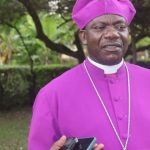The Intricate Traditions of Ugandan Ankole Tribe Marriages
Marriage ceremonies in Uganda are deeply rooted in tradition and vary significantly from one tribe to another. The Ankole tribe, with its unique customs and rituals, stands out among the diverse cultures of Uganda.
The Role of Paternal Aunts in Ugandan Culture
In many Ugandan cultures, the guidance and support provided by paternal aunties play a pivotal role in a young woman’s journey from adolescence to adulthood. While these aunties counsel and mentor their nieces in various tribes, the Ankole culture takes this guidance to a unique level during the marriage process.
Discovering the Ankole Tribe
The Ankole tribe, also known as the Banyankole, resides in Western Uganda, spanning regions such as Mbarara, Bushenyi, Kiruhura, Ibanda, Isingiro, and Ntungamo. The Banyankole people primarily speak Runyankole and are economically divided into two distinct groups: the “Bairu” and the “Bahima.” The Bairu, forming the majority, are cultivators of cash and food crops, while the Bahima are renowned pastoralists responsible for the care of the famous Ankole long-horned cattle.
Introduction Ceremony in Ankole
In Ankole culture, an introduction ceremony serves as the engagement party for the bride and groom. Families from both sides come together to discuss the future marriage of their children. The couple, prior to making any arrangements, typically seeks the approval and wisdom of their parents and elders.
Preparation for Marriage
From a young age, girls in Ankole are groomed for marriage by their paternal aunts. These mentors teach them the customs and expectations of marriage. In contrast to contemporary beauty ideals, slender women were considered unsuitable for marriage in traditional Ankole culture. As a result, Bahima girls were encouraged to consume a diet rich in beef and milk, leading to a heavier physique.
Furthermore, abstinence from sexual activity before marriage was strictly enforced, with severe consequences, including societal ostracism and even death threats. The underlying belief was that brides were unaware of sexual matters and how to please their husbands due to their innocence.
Role of the Paternal Aunt in Confirming Suitability
The most distinctive aspect of the Ankole marriage tradition is the role of the paternal aunt in confirming the groom’s virility and the bride’s virginity before consummation. While other tribes may involve the aunt listening at the groom’s window or door during consummation, Ankole culture goes a step further, as the aunt actually spends the first night with the groom to assess his sexual prowess.
Marriage Arrangements in Ankole
The responsibility for finding a suitable bride for a groom rests with the groom’s father. Once a potential bride is identified, a third party, known as the ‘kateraruume’ or the one who clears the path, represents the groom’s family during negotiations with the bride’s family. This highly respected intermediary negotiates the terms of the marriage and ensures the bride’s family’s acceptance.
Typically, negotiations include the bride price or dowry, which can be agreed upon at any time, sometimes even on the same day as the proposal. In traditional Ankole, the dowry often included cows, symbolizing the groom’s ability to care for his future wife.
The Giveaway Ceremony (OKUHINGIRA)
After the formal introduction, the giveaway ceremony marks the point at which the bride’s parents officially send their daughter to her marital home. Young boys and girls, referred to as ‘enshagarizi,’ accompany the bride, bearing gifts known as ‘Emihingiro’ for the groom’s family.
Today, it is the groom’s responsibility to provide transportation for the bride’s escorts, as they play a crucial role in any Ankole marriage ceremony.
Benefits for Both Parties
Marriage in Ankole holds advantages for both the bride and groom. The gifts brought by the bride can sometimes exceed the bride price. In some cases, aunties and uncles present cows as gifts to their daughter during the kuhingira, signifying the beginning of their own households.
Wedding Day Celebrations
On the wedding day, festivities are abundant. The bride’s family slaughters a bull as a symbol of celebration. At the groom’s home, another feast is held to consummate the marriage. This step follows the paternal aunt’s assessment of the bride’s purity and her intimate interaction with the groom to confirm his potency.
Post-Wedding Traditions
Following the wedding, the bride’s side retains authority. According to tradition, the bride is exempt from performing any labor until the final cultural initiation, known as ‘okwarura,’ approximately ten days after the giveaway ceremony. During this ritual, the bride is required to light a fire in the kitchen, symbolizing her readiness to take on household chores such as cooking for her new family.
The marriage traditions of the Ankole tribe offer a fascinating glimpse into the rich and distinctive cultures that make up the tapestry of Ugandan society.





















Even most parts of Rukungiri District are composed of Bahororo tribe with typical Banyankore/Ankore culture.